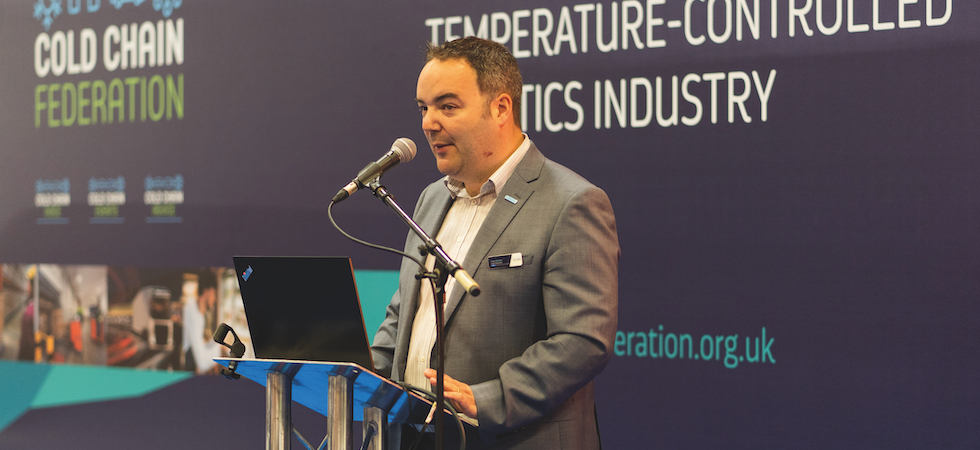Chief executive of the Cold Chain Federation (CCF) Shane Brennan has said that there were “lessons to be learned” from the Transports Committee’s latest report on the recent supply issues, but expressed his disappointment at its “poorly conceived” headline recommendation.
In the report entitled Road freight supply chain, MPs urged Ministers to give the logistics sector two years to deliver sufficient drivers, workers and facilities, including high-quality services and welfare.
Failure to do so, according to the Committee, should see the government implement a supply chain levy to assist in building facilities and training new drivers. The levy would require the parts of the supply chain where margins are greatest – such as large retailers, oil companies and online service giants – to deliver “improved standards and resilience to the supply chain.”
The report further recommends that government recognise driver facilities as key national infrastructure assets, to be delivered through a planning framework at a central level.
Amongst the reports other recommendations are:
- To retain and value drivers in their daily work, government should set a minimum standard for driver facilities that ensures they have safe and secure places to stop, rest and recuperate.
- Government should lead the way by prioritising new leases with motorway service operators operating on government-owned land.
- Just as recruits to the bus and coach sectors are funded by their sectors, haulage drivers should not have to pay for their own training.
An expensive incentive
The chair of the Transport Committee Huw Merriman MP urged the government “to be brave and force the sector to get its house in order.”
He said: “A supply chain levy has worked previously to incentivise reform. If the industry won’t deliver change, government should do so and send them the bill via increased taxes to those who produce and sell and make the most profits. This must be accompanied by minimum standards for planning, facilities and employers’ treatment of HGV drivers and seafarers. It’s the least we can ask for those who work so hard to deliver our goods to us.”
He added: “The industry needs an expensive incentive to fix its problems rather than expect the government, and taxpayer, to step in when we inevitably encounter the next crisis. The dire alternative is that drivers will go elsewhere and the essential goods we take for granted will be in short supply.”
A long way to go
Chief executive of the Cold Chain Federation (CCF) Shane Brennan said:“Last year’s driver shortage crisis was a rude awakening for our nation, demonstrating just how reliant we are on a small number of dedicated front line professionals to drive the vehicles carrying the goods that feed, clothe and generally sustain us.
“There are lessons to learn for everyone: haulage companies, their customers, government and the consumer. This report contains lots of important insights into what happened, why and what we must learn for the future. Working together, we have made a lot of progress in a short space of time, especially in terms of recruitment and training. Also we can see evidence of improved investment in welfare across depots and facilities. However we have a long way to go and there is a big danger that complacency will return.”
Brennan said that it was “a shame” that despite the many insights and testimony gathered for the report, that the headline recommendation is “so poorly conceived and unnecessarily divisive.”
He said: “We reject the idea that a tax on haulage services is a good idea especially at a time of general inflation across supply chains, particularly in food.
“Nor is it clear what the report authors believe can be achieved in the two year deadline they set, given they rightly identify the structural issues around national and local planning rules, highway infrastructure and market power dynamics that gave rise to the problems.”
He concluded: “All of these challenges require clear long term partnership between haulage companies, government and their customers. This will be achieved through open, committed partnership focused on common goals not seeking to single out blame, set arbitrary deadlines and make threats of punitive taxes.”









